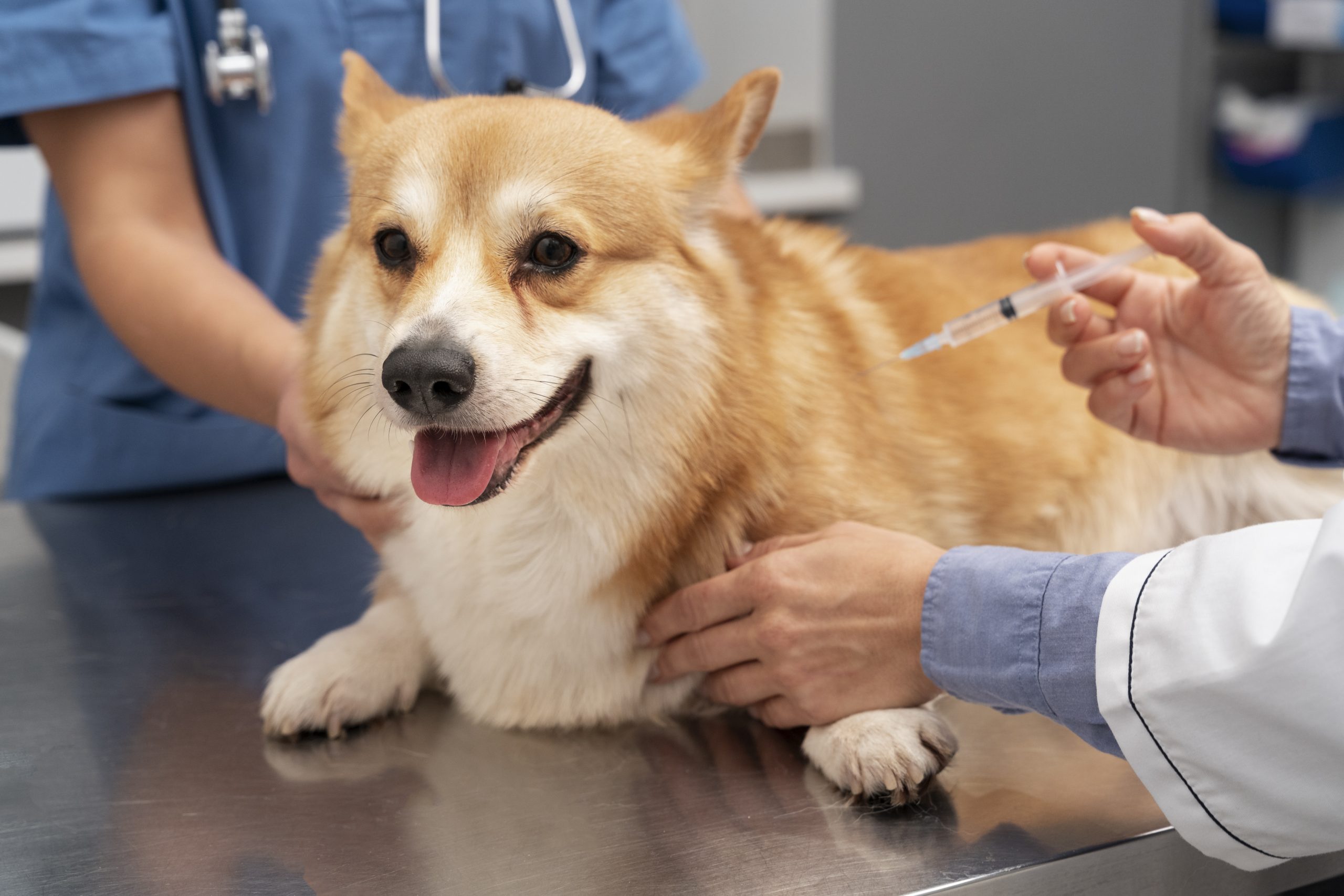Different Types Of Vaccines For Your Dog’s Protection

Here’s a list of the essential vaccines that your dog needs to stay healthy:
- Rabies Vaccine: This vaccine protects your dog from rabies, a deadly viral disease that can spread to humans. Rabies vaccination is typically required by law in many places.
- Distemper Vaccine: The distemper vaccine protects against a highly contagious virus that can cause severe respiratory, gastrointestinal, and neurological symptoms in dogs.
- Parvovirus Vaccine: Parvovirus is a highly contagious virus that can cause severe diarrhea, vomiting, and dehydration in dogs, especially puppies. The parvovirus vaccine helps prevent this deadly disease.
- Adenovirus Vaccine (Canine Hepatitis): This vaccine protects against adenovirus type 1, which can cause hepatitis (liver inflammation) in dogs. It also provides some protection against adenovirus type 2, which causes respiratory infections.
- Parainfluenza Vaccine: Parainfluenza is a highly contagious respiratory virus that can contribute to kennel cough and other respiratory infections in dogs. The vaccine helps protect against this virus.
- Bordetella Vaccine (Kennel Cough Vaccine): Bordetella bronchiseptica is a bacterium commonly associated with kennel cough, a contagious respiratory infection in dogs. The Bordetella vaccine helps reduce the severity and spread of kennel cough.
- Leptospirosis Vaccine: Leptospirosis is a bacterial disease that can affect dogs and humans. It’s spread through the urine of infected animals and can cause serious liver and kidney damage. The leptospirosis vaccine helps protect against this disease.
- Lyme Disease Vaccine: Lyme disease is transmitted by ticks and can cause fever, joint pain, and other symptoms in dogs. The Lyme disease vaccine can help prevent this tick-borne illness.
- Canine Influenza Vaccine: Canine influenza, or dog flu, is a contagious respiratory disease caused by influenza viruses. Vaccination can help protect dogs from this illness, especially those at higher risk of exposure.
Remember that It’s still important to consult with your veterinarian to determine the specific vaccination schedule and needs for your dog based on factors such as age, lifestyle, and geographic location. Regular vaccination is key to preventing many common and potentially life-threatening diseases in dogs.
